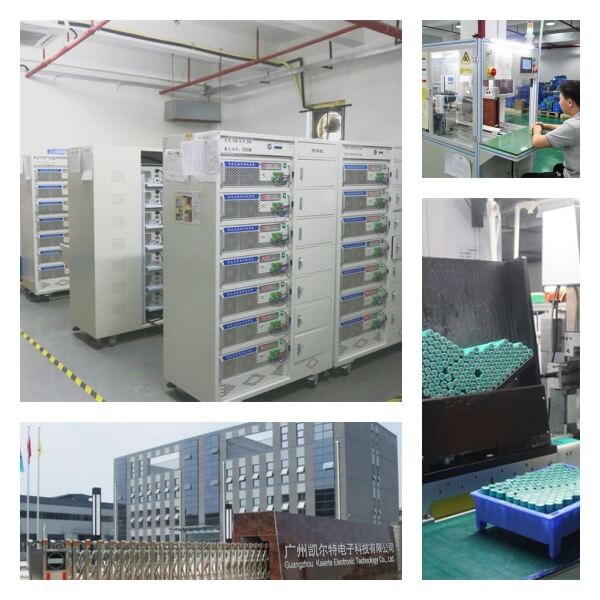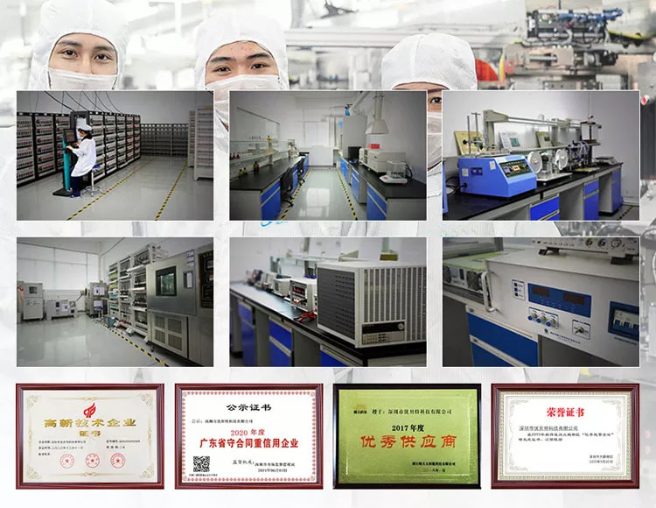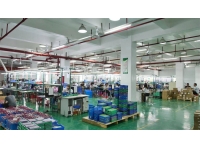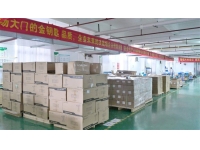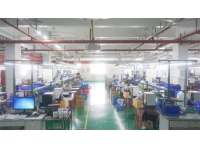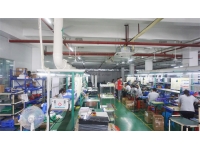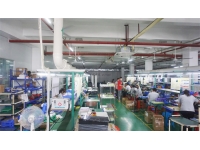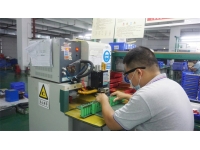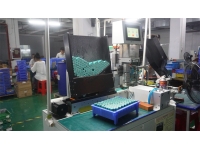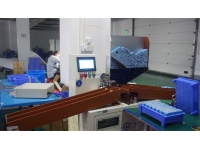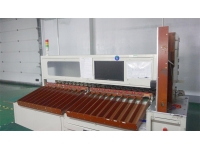Your Top
Custom Lithium ion Battery Pack Manufacturer & Factory in ChinaCall us today
Call us today

One Stop Wholesale Lithium ion Battery Pack Supplier - Provide The Ultimate Solutions
Lithium-ion battery is also named li-ion battery. It is a rechargeable battery that uses lithium ions as the main component of its electrolyte. Its advantages include high energy density, low self-discharge rate and long cycle life. This is why it is ideal for many new design solutions.Hi, I'm Eddie from KET. I will guide you through the page of this ultimate solution.
With a 20-person R&D team, Our company has the ability to custom design lithium-ion battery packs to meet the specific needs of your product. Whether it is a small single cell battery pack or a large battery pack, KET can design a safe and reliable solution.
KET employs a rigorous quality management process to ensure that all lithium ion battery packs meet the highest safety standards before they leave our facility. the KET factory is ISO 9001 certified and the batteries are UL, FCC, RoHS, UN 38.3 and IEC 62133, MSDS certified. Also you can view our certification and test reports for more information.
Why Choose Us?
 13 years of battery development and manufacturing experience.
13 years of battery development and manufacturing experience.
 Replace different sizes of lead acid batteries with Lithium batteries for RVs, golf carts, forklifts, marine, and more.
Replace different sizes of lead acid batteries with Lithium batteries for RVs, golf carts, forklifts, marine, and more.
 High quality lithium battery cell supply chain: We have stable cooperation with CATL, BYD, Samsung, LG, all battery packs are composed of A+ grade cells.
High quality lithium battery cell supply chain: We have stable cooperation with CATL, BYD, Samsung, LG, all battery packs are composed of A+ grade cells.
 All lithium ion battery packs are subject to strict quality inspection process before shipment, including incoming material inspection, capacity separation test, aging test, etc.
All lithium ion battery packs are subject to strict quality inspection process before shipment, including incoming material inspection, capacity separation test, aging test, etc.
 Strong R&D capability, currently KET has more than 20 R&D staff, which allows us to provide solutions to customers' different customized needs within 24 hours
Strong R&D capability, currently KET has more than 20 R&D staff, which allows us to provide solutions to customers' different customized needs within 24 hours
 7*24 hours online service
7*24 hours online service
Learn More
Hot Li-ion Battery Series
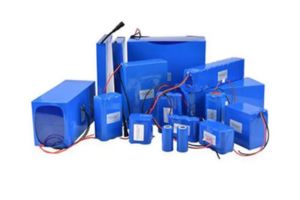
12V Li-ion Battery
• 12V 4Ah Li-Ion Battery
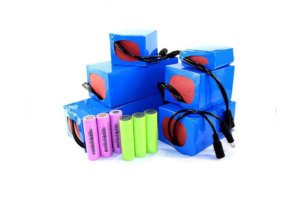
24V Li-ion Battery
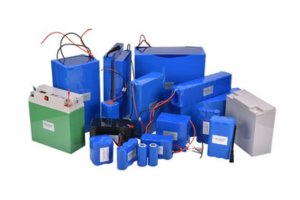
36V Li-ion Battery
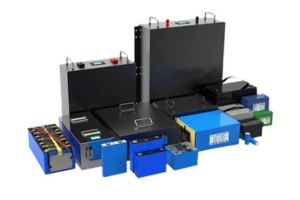
48V Li-ion Battery
Lithium-ion Battery Pack Applicaiton

Forklift

Golf Cart

Hoverboard

Ebike

Electric Vehicle

Go Kart

RV
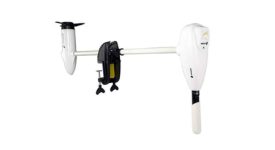
Trolling Motor

Motorcycle

Marine

ATV

Wheelchair

Solar System

E-Scooter

Jet Ski

Skateboard
How to Custom Lithium ion Battery Pack?
Before you send your quote, to ensure that we can quickly propose the best energy solution, please provide the following information:- 1. Application
- 2. Operating and peak currents
- 3. Capacity
- 4. Voltage
- 5. Battery size
- 6. Connector Type
- 7. Choose Battery Casing: PVC, Plastic casing, metal casing
Advantages of Lithium-ion Batteries Compared to Lead-acid Batteries
 Higher Energy Density
Higher Energy DensityA 12V 200Ahh lithium-ion battery weighs about 60-70 pounds, whereas a 12V 200Ah lead-acid battery weighs around 130-140 pounds.
 Longer Cycle Life
Longer Cycle LifeA typical lithium-ion battery might have a cycle life of 500-1000 cycles (if LiFePo4, can be over 2000 cycles), while a lead-acid battery might have a cycle life of 200-400 cycles.
 Shorter Charging Time
Shorter Charging TimeLithium-ion batteries can generally be charged more quickly than lead-acid batteries. For example, a lithium-ion battery might be able to be charged to 80% capacity in 1-2 hours, while a lead-acid battery might take 4-6 hours to reach the same level.
 Lower Self-discharge rate
Lower Self-discharge rateA lithium-ion battery might lose around 2-3% of its charge per month, while a lead-acid battery might lose around 6-8% per month.
 Environmental Impact
Environmental ImpactLithium-ion batteries are more environmentally friendly than lead-acid batteries, as they contain fewer toxic materials and are easier to recycle.
 Lower Cost
Lower CostAlthough the initial purchase cost of lithium-ion batteries is higher, they are less costly in terms of longevity.
The Complete Handbook for Lithium Ion Batteries
- Is it OK to leave a lithium-ion battery on the charger overnight?
- Yes. It is generally safe to leave a lithium-ion battery on the charger overnight, as most lithium-ion battery chargers are designed to stop charging once the battery is fully charged. But it's recommended to unplug the device once it's fully charged and to use a compatible charger to ensure the battery's longevity.
- How many years does a lithium-ion battery last?
- The lifespan of a lithium-ion battery can vary depending on several factors, including its chemistry, usage patterns, and environmental conditions. Here's a breakdown of some common types of lithium-ion batteries and their typical lifespans:
LiCoO2 batteries: These are the most common type of lithium-ion battery used in consumer electronics like smartphones and laptops. They typically last between 2-3 years or 300-500 charge cycles, whichever comes first.
LiMn2O4 batteries: These batteries have a longer lifespan than LiCoO2 batteries, typically lasting between 4-5 years or 600-800 charge cycles.
LiFePO4 batteries: These batteries are commonly used in electric vehicles and solar energy storage systems. They have a longer lifespan than LiCoO2 batteries, typically lasting between 8-20 years or 2000-5000 charge cycles.
- Do lithium batteries go bad if not charged?
- Lithium-ion batteries are possible to go bad if left uncharged for a long time. It is because a natural self-discharge process occurs when the battery is not being used, which causes the capacity of the battery to decrease over time. If a battery is left uncharged for a long time, the battery voltage will drop below the recommended level and it will become difficult to recharge or even impossible to recharge.
To avoid these problems, I recommend that you can store your Li-Ion batteries in a cool, dry place with a charge of around 50% to maximise their life. If you are storing the battery for a long period of time, it is best to charge it to around 50% every three to six months.
- How can lithium-ion battery packs avoid physical and mechanical damage?
- Our lithium-ion battery packs have passed many international standards tests, such as UN38.3, IEC62133, UL2054, and more, which certify safe travel and usage of Li-ion battery packs worldwide.
- Do lithium batteries leak?
-
The answer is YES.
Unlike older battery technologies such as alkaline batteries, lithium batteries are designed to be hermetically sealed and do not normally leak under normal conditions of use. However, if used incorrectly, it is possible to cause thermal runaway of the lithium battery, which can lead to degradation or decomposition of the electrolyte. This can lead to combustion, explosion, or leakage (gas or liquid).
Common misuse of lithium batteries includes overcharging, short-circuiting, or use in high temperature environments. All of these conditions can lead to thermal runaway of the battery.
To prevent lithium batteries from leaking or encountering issues, you can follow these tips:
 Use high-quality lithium batteries: The most effective way to identify a high-quality battery is to check whether it is fully certified and whether the factory has passed an internationally accepted quality management system such as ISO 9001.
Use high-quality lithium batteries: The most effective way to identify a high-quality battery is to check whether it is fully certified and whether the factory has passed an internationally accepted quality management system such as ISO 9001.
 Avoid physical damage: Dropping, crushing, or puncturing a battery can damage the internal structure and increase the risk of leakage.
Avoid physical damage: Dropping, crushing, or puncturing a battery can damage the internal structure and increase the risk of leakage.
 Use the correct charger: Using an incompatible charger can lead to overcharging, overheating, and potentially cause leaks or other safety issues.
Use the correct charger: Using an incompatible charger can lead to overcharging, overheating, and potentially cause leaks or other safety issues.
 Avoid extreme temperatures: Lithium-ion batteries should be stored and operated within their recommended temperature range, typically between 0°C and 45°C (32°F to 113°F).
Avoid extreme temperatures: Lithium-ion batteries should be stored and operated within their recommended temperature range, typically between 0°C and 45°C (32°F to 113°F).
 Don't overcharge or over-discharge: Overcharging can generate excess heat and stress the battery, leading to leaks. Similarly, avoid fully discharging the battery, as deep discharge can also cause issues.
Don't overcharge or over-discharge: Overcharging can generate excess heat and stress the battery, leading to leaks. Similarly, avoid fully discharging the battery, as deep discharge can also cause issues.
 Inspect for damage: Regularly inspect your lithium batteries for any signs of damage, such as bulging, dents, or leaks.
Inspect for damage: Regularly inspect your lithium batteries for any signs of damage, such as bulging, dents, or leaks.
 Store properly: When not in use, store lithium batteries in a cool, dry place away from direct sunlight and flammable materials. The battery needs to be recharged every 3-6 months until it reaches 50%.
Store properly: When not in use, store lithium batteries in a cool, dry place away from direct sunlight and flammable materials. The battery needs to be recharged every 3-6 months until it reaches 50%.
- Nimh or Li ion batteries - What is the difference?
- NIMH (Nickel Metal Hydride) and Li-ion (Lithium-ion) batteries are two different types of rechargeable batteries, each with its own characteristics and advantages. Here is a comparison between the two:
Energy Density:
Li-ion batteries have a higher energy density compared to NiMH batteries. Li-ion batteries can store about 150-200 Wh/KG, while NiMH batteries store around 60-120 Wh/KG. It means that Li-ion batteries are smaller in size for the same weight.
Self-Discharge:
NiMH batteries can lose about 1-2% of their charge per day, while Li-ion batteries have a much lower self-discharge rate, losing around 1-3% per month. So Li-ion batteries are more suitable for devices that require long-term storage.
Memory Effect:
NiMH batteries are prone to the memory effect, which can reduce their overall capacity over time if not properly managed. However, Li-ion batteries do not suffer from the memory effect.
Cycle Life:
Li-ion batteries generally have a longer cycle life compared to NiMH batteries. A cycle refers to a full discharge and recharge of the battery. Li-ion batteries can typically endure over 500 cycles (LiFePO4 battery can reach 2000 cycles), while NiMH batteries last for about 200-300 cycles.
Charging Time:
Li-ion batteries generally have a shorter charging time compared to NiMH batteries. Li-ion batteries can be charged more quickly due to their lower internal resistance. NiMH batteries require a longer charging time, especially if they are deeply discharged.
Environmental Impact:
Both NiMH and Li-ion batteries are environmentally friendly compared to disposable batteries. However, Li-ion batteries have a lower environmental impact due to their higher energy density, longer lifespan, and reduced need for frequent replacements.
Cost:
NiMH batteries are generally less expensive compared to Li-ion batteries. However, Li-ion batteries' longer lifespan may provide a better overall value in the long run.
- What are the different types of Li ion batteries?
- There is a large family system of lithium-ion batteries. Here KET gives you a list of 5 common types of Li-ion batteries based on the composition of the electrodes.
1. Lithium Cobalt Oxide (LCO)
2. Lithium Iron Phosphate (LFP, LiFePO4)
3. Lithium Manganese Oxide (LMO)
4. Lithium Nickel Manganese Cobalt Oxide (NMC)
5. Lithium Nickel Cobalt Aluminum Oxide (NCA)
All these five types of lithium-ion batteries are all relatively common. But in terms of comprehensive performance as well as environmental attributes, LiFePO4 batteries are the best performers. They have high cycle life, high safety and environmental friendly features, so they are mainly used in various energy storage fields.
- Do Li ion batteries degrade if not used?
- Yes, Li-Ion batteries will degrade if not use. All batteries are self-discharging and gradually discharge even when the device is not in use, and li-ion batteries are no exception.
Li-ion batteries have a minimum voltage (most is around 2.5 to 3.0 volts per cell). If the battery power is lower than this point, it is an over-discharge phenomenon. Excessive discharge can render a Li-ion battery unsafe to charge, or even permanently damage it. But the good news is that li-ion batteries have a lower self-discharge rate than most other batteries. Their self-discharge rate is only 1%-3% per month.
If you want to store li-ion batteries for a long time, you only need to charge the battery once every six months and the power reaches 50%. And the KET recommended temperature for storing batteries is around 20°C (68°F). In this way, you can extend the life of the Li-Ion battery.
- How many years do Li-ion batteries last?
- Lithium Cobalt Oxide (LCO): LCO batteries typically have a lifespan of around 300-500 cycles. They can last for around 2-3 years.
Lithium Iron Phosphate (LiFePO4, LFP): LFP batteries are known for their long lifespan and can last for 2000-5000 cycles or more. They can have a lifespan of 8 years or more.
Lithium Manganese Oxide (LMO): LMO batteries generally have a lifespan of 500-1000 cycles. They can last for about 2-5 years.
Lithium Nickel Manganese Cobalt Oxide (NMC): NMC batteries can have a lifespan ranging from 500-1000 cycles or more. With regular usage, they can last for about 3-5 years.
Lithium Nickel Cobalt Aluminum Oxide (NCA): NCA batteries typically have a lifespan of around 500-800 cycles. With regular usage, they can last for 2-4 years.
The above is only an estimated data, and the actual service life will be affected by many factors, such as operating temperature, battery usage frequency, whether there is maintenance, etc.
- What is the lithium battery state of charge chart?
-
There is a big difference in the state of charge exhibited by Li-ion batteries with different chemistries. So today KET's engineers chose the hottest LiFePO4 battery for testing, including LFP cells, 12V, 24V and 48V.
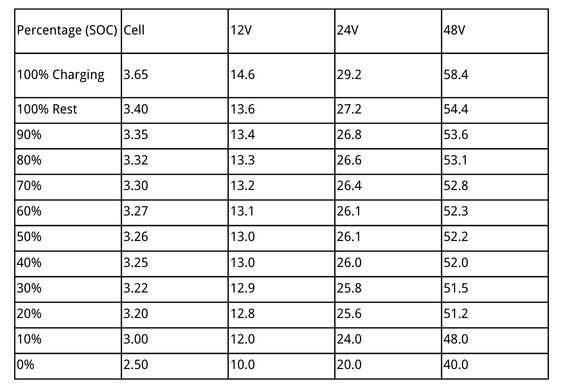
- Are Lithium Batteries Safe?
- KET's lithium batteries are extremely safe and reliable. Every KET lithium battery is protected by a Battery Management System (BMS) against overcharging, overheating and short circuits, which also extends the life of the battery.
To guarantee the quality of the lithium battery pack, we use A-grade cells from major brands such as CATL,Samsung etc. This also contributes significantly to the safety of the KET llithium battery pack.
However, like any other battery, lithium batteries can still pose a safety risk if they are not used or handled correctly. So there are a number of tips to keep in mind when using lithium batteries, including storing them in a cool, dry place, avoiding overcharging or discharging them and handling them with care.
- How should I store my battery?
- To store a lithium-ion battery properly, you should follow these guidelines:
1. Charge the battery to approximately 50% capacity before storing it. This helps to maintain its overall health.
2. Store the battery in a cool, dry place. Avoid storing it in direct sunlight, as high temperatures can degrade the battery's performance and lifespan.
3. Keep the battery away from flammable materials and sources of heat.
If you're storing the battery for an extended period of time, check its charge level periodically and recharge it as needed to maintain the 50% charge level. Check-ups once every 3-6 months.
- How to charge a lithium ion battery?
- KET Lithium ion batteries perform best when charged by a lithium compatible charger.
- What are the advantages of buying lithium batteries from China?
-
There are several advantages of buying lithium batteries from China:
 Cost-Effective: Chinese li-ion battery manufacturers often offer competitive prices due to lower labor and production costs compared to other countries. Although manufacturing in India and Vietnam has also developed in recent years and labour is cheaper, the relative cost in China is still relatively low in terms of the integrity of the lithium battery supply chain and the professionalism of the labour force.
Cost-Effective: Chinese li-ion battery manufacturers often offer competitive prices due to lower labor and production costs compared to other countries. Although manufacturing in India and Vietnam has also developed in recent years and labour is cheaper, the relative cost in China is still relatively low in terms of the integrity of the lithium battery supply chain and the professionalism of the labour force.
 Wide Range of Options: China has a vast lithium battery industry with numerous manufacturers, providing a wide variety of options in terms of battery types, capacities, and configurations. There are already many international lithium battery brands in China, such as BYD, CATL, etc.
Wide Range of Options: China has a vast lithium battery industry with numerous manufacturers, providing a wide variety of options in terms of battery types, capacities, and configurations. There are already many international lithium battery brands in China, such as BYD, CATL, etc.
 Technological Expertise: China has made significant advancements in lithium battery technology and has a strong research and development sector, ensuring access to cutting-edge battery technologies and innovations.
Technological Expertise: China has made significant advancements in lithium battery technology and has a strong research and development sector, ensuring access to cutting-edge battery technologies and innovations.
 Scale and Production Capacity: Chinese manufacturers have the ability to produce lithium batteries in large quantities, making it easier to meet bulk or high-volume orders. For example, KET, as a powerful Lithium Battery Producer, is currently capable of producing more than 2,000 lithium batteries per day.
Scale and Production Capacity: Chinese manufacturers have the ability to produce lithium batteries in large quantities, making it easier to meet bulk or high-volume orders. For example, KET, as a powerful Lithium Battery Producer, is currently capable of producing more than 2,000 lithium batteries per day.
 Customization and OEM Capabilities: Many Chinese manufacturers offer customization services, allowing buyers to design and tailor lithium batteries to their specific requirements. For example, at KET, we have been providing customised and manufactured lithium-ion battery components to various industries for over 13 years.
Customization and OEM Capabilities: Many Chinese manufacturers offer customization services, allowing buyers to design and tailor lithium batteries to their specific requirements. For example, at KET, we have been providing customised and manufactured lithium-ion battery components to various industries for over 13 years.
 Established Supply Chain: China has a well-developed supply chain for lithium batteries, ensuring efficient sourcing of raw materials, components, and manufacturing equipment. For example, in Shenzhen, where KET is located, you can do almost all the sourcing of raw materials for lithium batteries here.
Established Supply Chain: China has a well-developed supply chain for lithium batteries, ensuring efficient sourcing of raw materials, components, and manufacturing equipment. For example, in Shenzhen, where KET is located, you can do almost all the sourcing of raw materials for lithium batteries here.
Looking for a reliable China li-ion battery manufacturer? Contact KET today! With comprehensive product certifications and strong R&D capabilities, we've got you covered.
- Should you store lithium batteries fully charged?
- No, you should not do it. Fully charging a lithium-ion battery and leaving it at 100% charge for a prolonged period can cause stress to the battery and lead to degradation of its capacity and overall lifespan.
If you plan to store lithium-ion batteries for an extended period, we suggest you store them at around 50% charge and in a cool, dry place. You should also check and recharge the batteries periodically to prevent them from discharging too much or losing their charge entirely.
- Do lithium batteries leak like alkaline?
- Lithium batteries generally do not leak as much as alkaline batteries. However, in extreme cases, leaks can still occur.
Alkaline batteries contain a liquid electrolyte that can easily leak out if the battery is damaged or reaches the end of its life. This leakage can lead to corrosion and damage to surrounding equipment.
Lithium batteries are not prone to leakage due to their internal design and the chemicals used. There are 3 main points:
1. including Li-ion and Li-polymer batteries, which generally use a solid or gel electrolyte that is not prone to leakage.
2. Some lithium batteries also use a liquid electrolyte, but the positive and negative electrodes of the lithium battery are separated by a microporous diaphragm. The presence of this barrier prevents leakage of the liquid electrolyte.
3. The case of a lithium battery is usually sealed to ensure that the inside of the battery is isolated from the external environment.
So, what happens to a lithium battery that is considered extreme?
Extreme conditions include such as severe physical damage to the lithium battery, overcharging or over-discharging, high or low-temperature exposure, etc. Lithium batteries in such cases result in rupture of the battery container or electrolyte leakage. However, these cases are very rare. So lithium batteries are still very safe.
So, what should I do if a lithium battery does leak?
If you encounter abnormal conditions in the battery, such as leakage, heat, expansion, odor, etc., you should stop using it immediately. Specific steps are as follows:
1. Avoid contact: Avoid direct contact with the leaking liquid, especially avoid contact with the skin, eyes or mouth. If you accidentally come into contact with the liquid, immediately flush the appropriate area with water and seek medical assistance.
2. Use personal protective equipment: Wear appropriate personal protective equipment, such as gloves, glasses, and a mask, to prevent contact with skin, eyes, or inhalation of hazardous gases.
3. Ventilation: Ensure that the spill is in a well-ventilated environment during handling to allow hazardous gases to escape.
4. Clean up spills: Carefully collect spills in plastic bags. Avoid using metal tools, as metal may cause sparks or other hazards. Once the spill is contained, then place the battery in a local battery recycling bin.
- What is the lithium ion battery diagram?
-
The following is a diagram of a lithium-ion battery in both charging and discharging states.
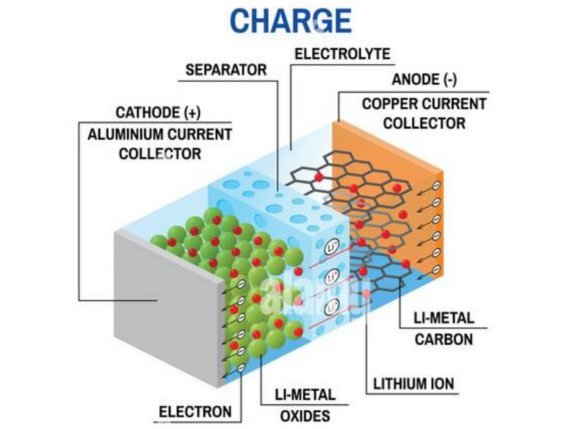
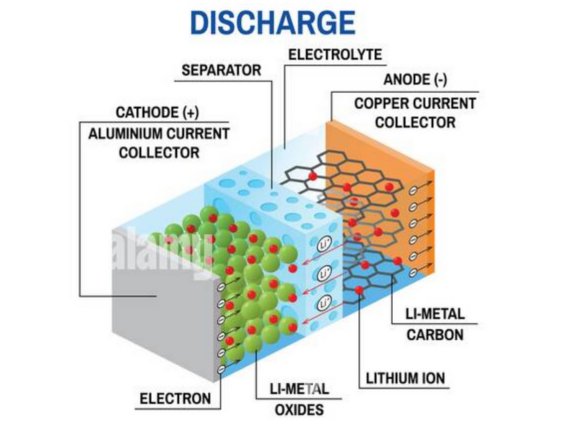
- What is the lithium battery SOC chart?
-
The following graph is the data tested by KET's engineers with a Li-ion battery cell.
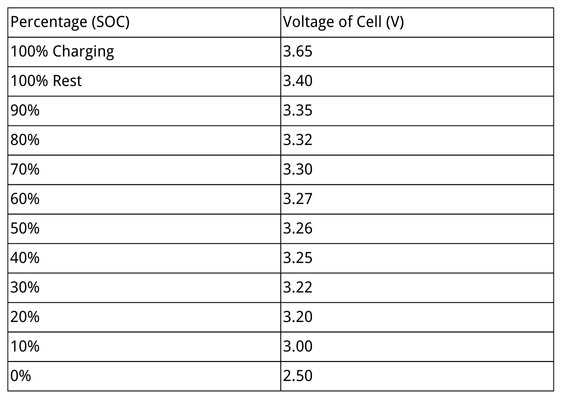
- What is the difference: Li Po Vs Li ion Battery?
- Li-ion (Lithium-ion) batteries and LiPo (Lithium Polymer) batteries are both types of rechargeable lithium-based batteries. While they share some similarities, there are also have some differences between them:
Electrolyte: Lithium polymer batteries use a solid gel electrolyte, while lithium ion batteries generally use a liquid electrolyte..
Energy Density: LiPo batteries generally have a higher energy density compared to Li-ion batteries. For example, the energy density of the commonly used 18650 lithium-ion battery is about 500 Wh/L, while that of the polymer battery is close to 600 Wh/L. Here is just an example. In fact, the chemical composition of lithium-ion batteries is also very diverse, the performance of energy density will also be different, here is not to explain.
Shape and Flexibility: Although lithium-ion batteries can also be designed in a variety of battery pack shapes. In terms of shape and size, it is clear that lithium polymer batteries are more flexible. This is because they can be designed in slim and flexible forms, allowing them to fit into unconventional spaces or conform to specific device designs.
When it comes to choosing between LiPo and Li-ion batteries, the decision depends on the constraints of the application. LiPo batteries are often preferred in applications where lightweight, flexibility, and high energy density are crucial, such as in drones, portable electronics, and radio-controlled devices. Li-ion batteries are commonly used in a wide range of devices, including smartphones, laptops, electric vehicles, and power tools.
- How are Li ion batteries recycled?
- 1. Battery recycling factory will collect waste batteries from various sources, including recycling centers, electronic waste (e-waste) collection programs, or battery drop-off sites.
2. The collected batteries are sorted and then cut into small pieces for further processing.
3. The batteries are then passed through pyrometallurgical or hydrometallurgical processes so that various elements can be extracted. If you want to learn more about the process of these two processes, you can refer to Wikipedia's introduction: Hydrometallurgical or Hrometallurgical
Pictures from Li-ion Battery Supplier
- Factory
- Certification
- Production & Test Equipment
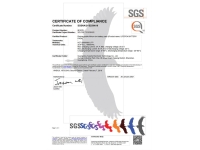 UL
UL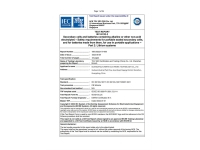 CB
CB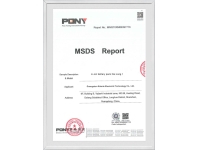 MSDS
MSDS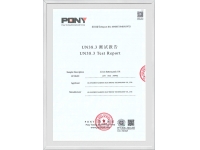 UN38.3
UN38.3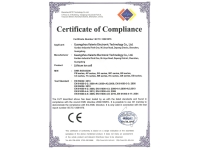 CE
CE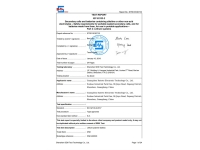 IEC-62133
IEC-62133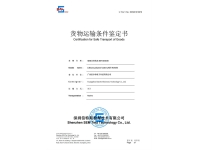 Certification for Safe Transport of Goods
Certification for Safe Transport of Goods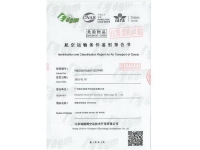 air transport
air transport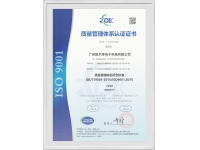 ISO 9001 2015
ISO 9001 2015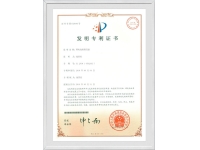 invention of Lithium battery testing equipment
invention of Lithium battery testing equipment
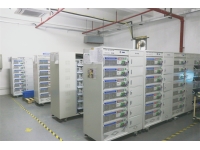 Battery charge and discharge test system
Battery charge and discharge test system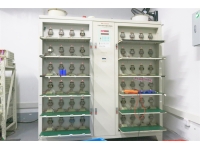 Rechargeable battery performance testing equipment
Rechargeable battery performance testing equipment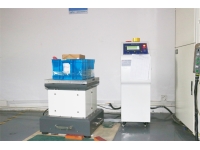 Vibration Testing Machine
Vibration Testing Machine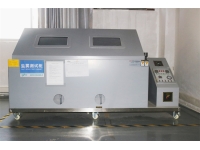 Salt spray test cabinet
Salt spray test cabinet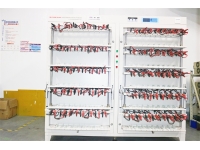 Lithium battery automatic testing equipment
Lithium battery automatic testing equipment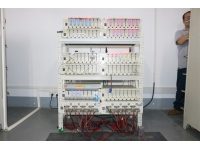 Discretionary cabinets
Discretionary cabinets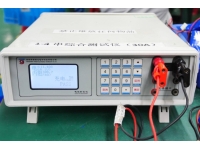 Integrated Tester
Integrated Tester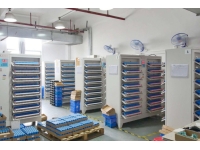 Battery Detector
Battery Detector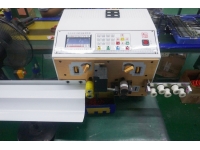 Automatic Wire Stripping Machine
Automatic Wire Stripping Machine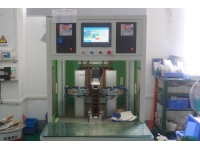 Automatic spot welding machine
Automatic spot welding machine
Related Lithium ion Battery Video
Wholesale Lithium Battery Cell
Discover a reliable source for bulk lithium battery cells.
Battery Pack Customization
Tailor-made battery packs designed to meet your specific requirements. for your every new project
Making Li-ion Battery Pack
Witness the intricate process of assembling high-quality Li-ion battery packs.
One-Stop Ebike Battery Maker
Your ultimate destination for comprehensive ebike battery solutions.
Contact KET to Start Your Wholesale Li-ion Battery Pack Project
Sales Director
